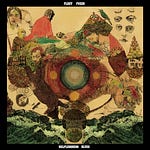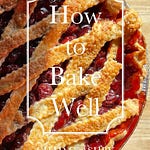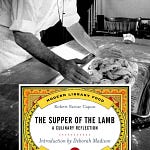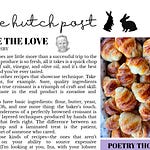In 1953, it took Ernest Hemingway less than a hundred pages to win the Pulitzer. And in 1954, the Nobel Prize for literature. The book was The Old Man and the Sea—a novella, not even long enough to be considered a full novel.
I tossed the book into my seventh grader’s lap this past Sunday afternoon, and he had it finished in about an hour. My point, if it isn’t clear yet, is that it’s short.
Reviewers over the years have described Hemingway’s style as terse, direct, forceful, threadbare, simple. The book jacket on my edition claims, “Ernest Hemingway did more to change the style of English prose than any other writer in the twentieth century.” I teach both Hawthorne and Hemingway in my American Lit class, and there’s definitely a stylistic chasm between The Scarlet Letter and The Old Man and the Sea.
When I pitched the work to the guys in my book club, this was my text message review: “Short, manageable, about fishing and baseball.”
My son Fletcher’s first reaction to the book was, “Funny how the whole story happens in a little boat.” True. And the Cuban fisherman straining in the center the story is like a crazed Gandhi. When he suffers, he speaks in aphorisms:
“Pain does not matter to a man.”
“Man is not made for defeat . . . A man can be destroyed but not defeated.”
“I am glad we do not have to try to kill the stars.”
“It is silly not to hope.”
“You’re tired, old man . . . You’re tired on the inside.”
“Bed is my friend.”
I pastored for nine years, preaching week in and week out. The sermons that went long all had one thing in common: I was less prepared. Makes no sense, right? The truth is, it’s actually easier to be long-winded. But to interrogate every word, to question its purpose and keep only the essential? That takes immense strain and sweat.
Here’s an aphorism of my own I often tell my students:
There’s no great virtue in using seven words when six will do.
Unfortunately, some modern composition curricula teach writers to use “dress-ups” to make their sentences more interesting—things like adverbs and adjectives. That’s kind of like putting extra sprinkles on a bland cake.
You don’t have to dress anything up if you choose good ingredients from the start. English is a language of nouns and verbs. If our words are watery, garnishes won’t make them better. We must be imaginative and ruthless. We must strain and wrestle. And delete. And erase. And eliminate any word that does not carry its weight.
Hemingway’s The Old Man and the Sea shows us what can be accomplished with the unembellished English language. To push things a bit further, when we press every word into service, we are inching closer to the imago Dei. We were made to reflect the glory of God who can write, “Not one word of all the good promises that the LORD had made to the house of Israel had failed; all came to pass” (Jos 21:45). Moreover, we love our neighbor with our words when we take care not to waste his time with our empty chatter.
Style gurus Strunk and White point us down the path of Hemingway when they encourage us to “omit needless words”:
“Vigorous writing is concise. A sentence should contain no unnecessary words, a paragraph no unnecessary sentences, for the same reason that a drawing should have no unnecessary lines and a machine no unnecessary parts. This requires not that the writer make all his sentences short, or that he avoid all detail and treat his subjects only in outline, but that every word tell.”
Confidence in the Kitchen.
I wonder whether one reason students feel the need to dress up their compositions is they lack the confidence that their thoughts are worthy of attention. They bedazzle their ideas in an effort to trick readers into taking them seriously.
And yet, this matches the life that many of our children live at home. Tasks given to them are rarely essential—only ornamental to family life. Nothing they are asked to do at home is of actual consequence.
We can tell kids to be more confident writers, but it begins with being more confident people. So how do we inspire that confidence? In our kitchen, it looks like allowing a child to crack an egg. That’s a momentous event for my kids. I don’t get it, but okay. We’ve trained our kids how to use real kitchen knives (not just kid-safe plastic ones).
And here’s the kicker: They know how to make my morning coffee. Parents out there, don’t miss this. You have eager baristas in your home waiting to make your morning joe for you. Teach them. Let them. Watch their faces shine with esteem because to them, morning coffee is as adult as it gets.













Share this post